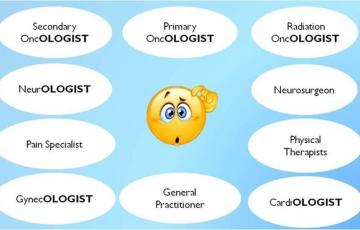Search Results

One More 'Ologist'
After staring down Stage IV non-Hodgkin lymphoma in 2016, I AM HERE, and I am grateful beyond measure. However, I am learning that the treatments that saved my life came at a high cost, and that in its own way survivorship is the hardest part of what I and my family now call, “the adventure.” 'The adventure' is certainly never what we imagined it would be.

How Patients Really Feel About Artificial Intelligence in Healthcare
It seems that everywhere we turn lately we hear something about the promises and the perils of artificial intelligence (AI). AI is touted as a smart, efficient tool that can speed and streamline processes, analyze and manage complex data, and cut time and costs.
In the healthcare setting, it has the potential to be used to review and gather medical information quickly, screen for risk of disease and suggest diagnoses, provide second opinions, prevent harmful medication interactions, identify treatment options and clinical trials, reduce patient wait times, and much more.
Blood Tests
When your doctor orders a blood test, he or she chooses from a list of chemical studies to be performed in a laboratory on your blood sample. These lab tests can provide important clues about what's going on inside your body.
If your doctor suspects you may have cancer, he or she may test your blood to:
Remembering Robbie
On Friday, October 20, 1944, Robert “Robbie” Roesler de Villiers was only 16 years old when he died from leukemia. Robbie’s parents, Rudolph and Antoinette, were stricken with grief and frustrated by the lack of effective treatments for what was then considered a hopeless disease. In his memory, the family started a foundation in 1949.